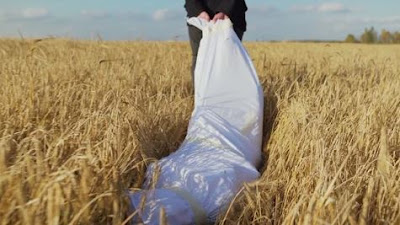BRIDGERTON has proved to be one of Netflix’s most popular productions. Its peculiar combination of history, the lifestyles of the rich and the famous, and identity politics, has captured a substantial chunk of younger Netflix viewers.
How much these younger viewers actually know about the society, economy and politics of Regency England is uncertain – although “not much” would be a pretty safe bet. Nor can we be certain about how much their understanding of the period has been distorted by Bridgerton – but, on this question, “a whole lot” would probably be the correct answer.
So, what is wrong with Bridgerton? Why are these questions about history and its distortion so important?
Bluntly, the problem with Bridgerton is that it presents Regency England (1811-1820) as a nation in which racial diversity is evident everywhere. All the way from the poorest layers of society to the upper reaches of the English aristocracy, persons of African and Indian heritage are an integral part of their respective communities. Sadly, this presentation of England’s past is not only false, it is also dangerous.
If there really had been Black duchesses in Regency England, then our present-day reality would be entirely different. In fact, the creative and political impulses behind Bridgerton , if absorbed uncritically, must render any useful understanding of contemporary racism an impossibility.
When confronted with these criticisms, the creator of Bridgerton , Chris Van Dusen, responded that the drama “is a reimagined world, we’re not a history lesson, it’s not a documentary. What we’re really doing with the show is marrying history and fantasy in what I think is a very exciting way. One approach that we took to that is our approach to race”.
In spite of Van Dusen’s denials, Bridgerton’s narrative appears to be based on the assumption that “colour-blind casting” – the assigning of dramatic roles without reference to the actors’ skin colour – produces an entirely positive set of progressive outcomes.
Colour-blind casting means that the discriminatory impact of elevating historical accuracy above equal opportunity is overcome. Henceforth, every role is open to every performer. This requires the audience to “look through” an actor’s skin colour and concentrate instead on the quality of their performance. Ideally, the jarring effect of assigning culturally significant “white” roles to people of colour also requires the audience to confront and examine their own racist assumptions and expectations.
If an actor of Indian heritage is cast as Charles Dickens’ David Copperfield, or a black actress is given the role of Queen Anne Boleyn, and you’re outraged, then what does that say about you? The answer, of course, is that your outrage represents an unmistakable manifestation of deep-seated racism. Colour-blind casting isn’t the problem – you are.
Except that anyone with even the most tenuous grasp of their historical heritage knows full well that no one from the Indian sub-continent could possibly have had the luck of Dickens’ David Copperfield. England in 1840 just wasn’t that sort of place. They’d also know that there was absolutely no way a king of England – even one as willful as Henry VIII – would have been permitted to marry a “Moor”. To cast Black actors in these roles is a gross distortion of the past. A distortion undertaken in the misguided hope of ameliorating the racism of the present.
To understand the racism embedded in contemporary European societies and their colonial offshoots it is necessary to understand the historical conditions out of which the sickness arose. That understanding would be greatly assisted if the source of the extraordinary wealth on display in Bridgerton : the grand estates and magnificent mansions; the glittering jewels and ball-gowns; the legions of servants; the great crowds of hangers-on; was accurately depicted as the fruits of the extraordinary profits of the sugar islands of the West Indies and the hundreds-of-thousands of slaves that were shipped across the Atlantic Ocean to work in the (very white) aristocrats’ obscenely lucrative plantations.
The Prince Regent (after whom the Regency period is named) was, of course, the son of the King George III. It was his father who “lost” the thirteen rebellious colonies that became the United States of America. How helpful it would be, therefore, to produce a Netflix drama series whose leading characters hailed from both the slave-owning cotton producers of the American south and the cotton-mill-owners of the English north. How easy it would be then to expose how the chattel slavery that made America also made English capitalism. How Uncle Tom’s slave-cabin and England’s dark satanic mills were always bound together by unbreakable sinews of tortured human flesh.
Ah, but would such a truthful depiction of the past rate? Do the sort of people who watch Netflix really want to be shown the ways in which the horrors of the past drove sharp shards of misery deep into the West’s cultural soul. A truthful Bridgerton would explain the European people’s desperate need to erase the past. Episode by episode, it would depict the inevitable psychological projection of their worst impulses on to their victims: the relentless construction of the racial “other”.
But that would be a Bridgerton too far. And besides, who the hell would watch it?
It is surely no accident that Bridgerton ’s executive producer is Shonda Rhimes, the guiding intelligence behind that other big Netflix hit Inventing Anna. Rhimes just “gets” the millennial zeitgeist. History is what you make up – what you can make people believe. How? As easily as the real Anna Sorokin created the fabulous “Anna Divey”; or, by conjuring up the fantasy of a racially diverse Regency. You present an historically blank generation with “realities” they want to believe in.
An impossibly cool German heiress.
A world without racism.
This essay was originally posted on The Daily Blog of Thursday, 31 March 2022.



.jpg)


.JPG)

.JPG)




